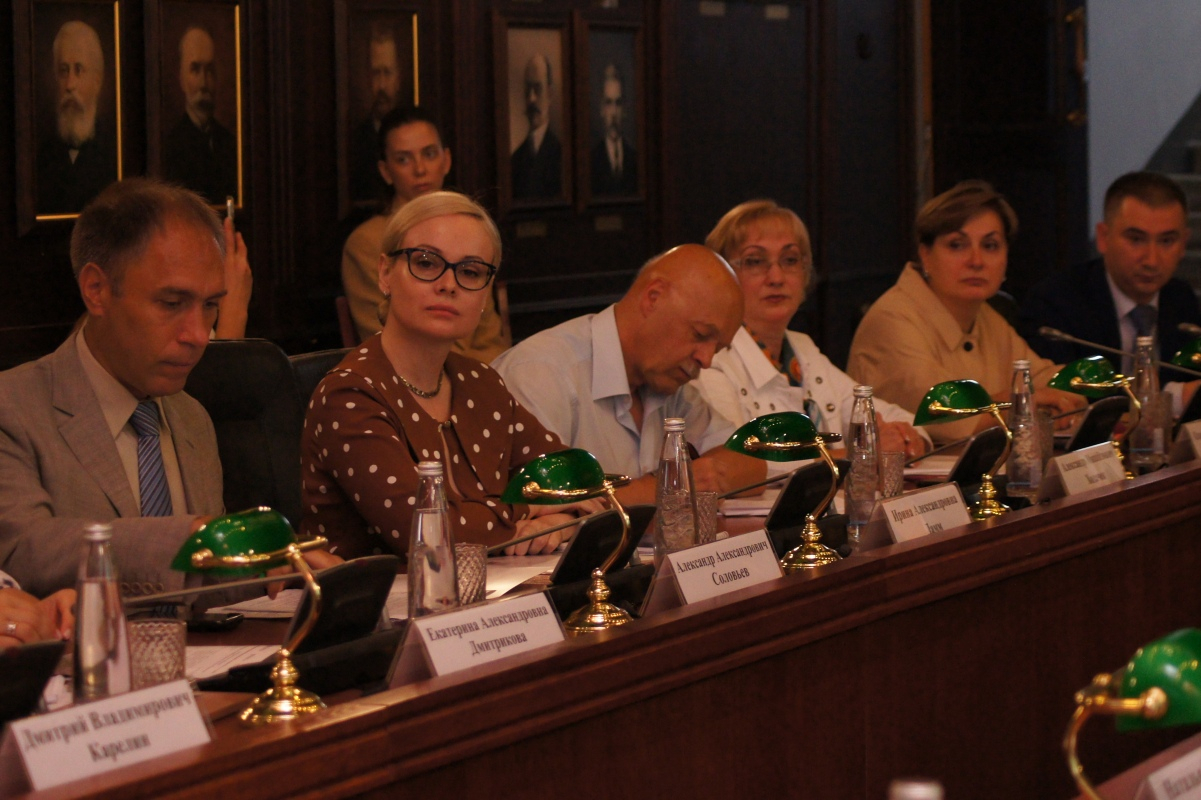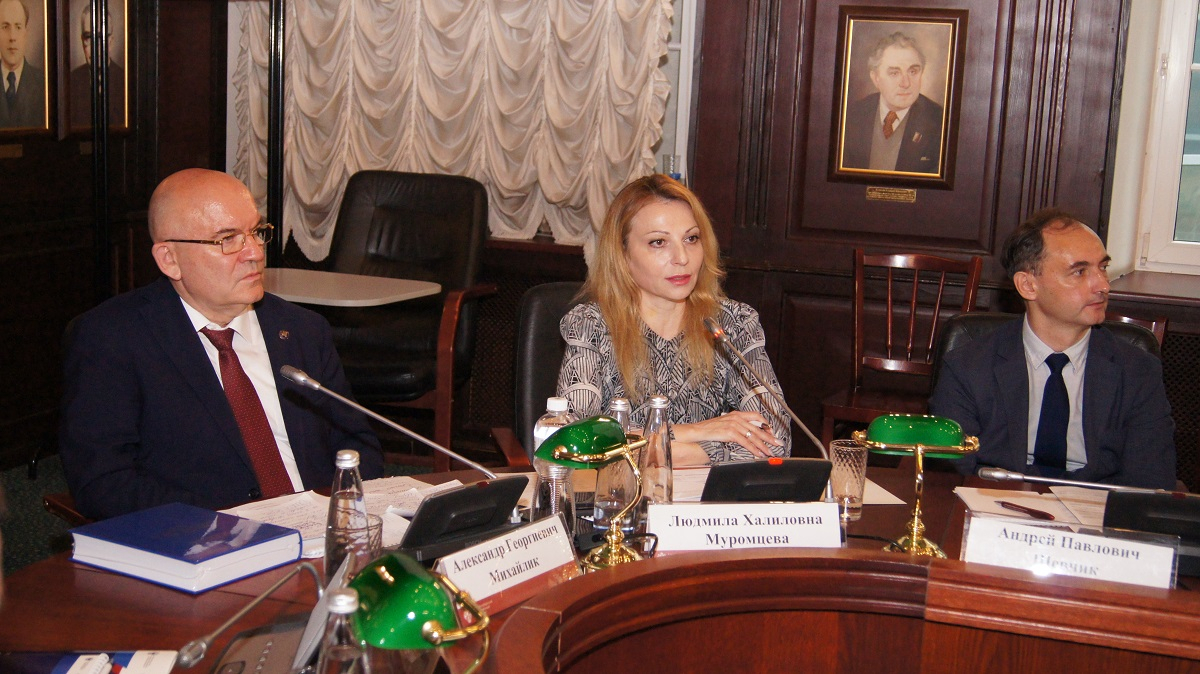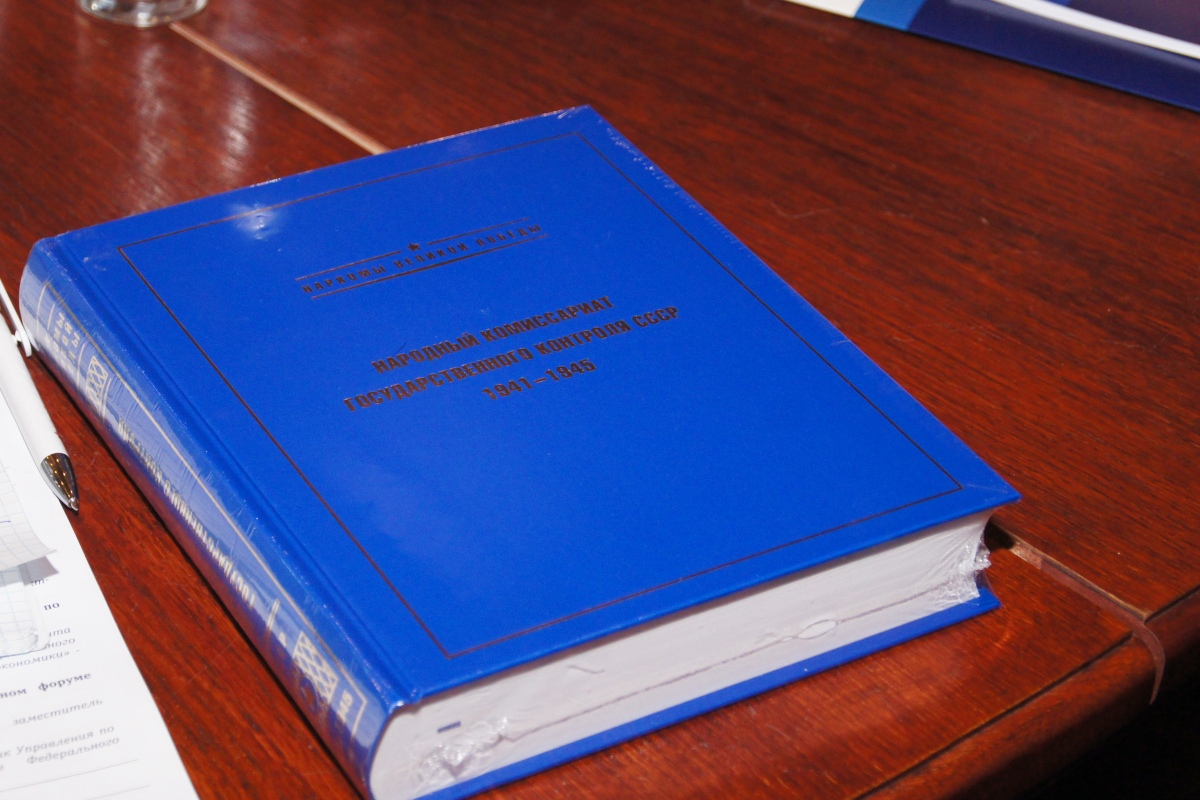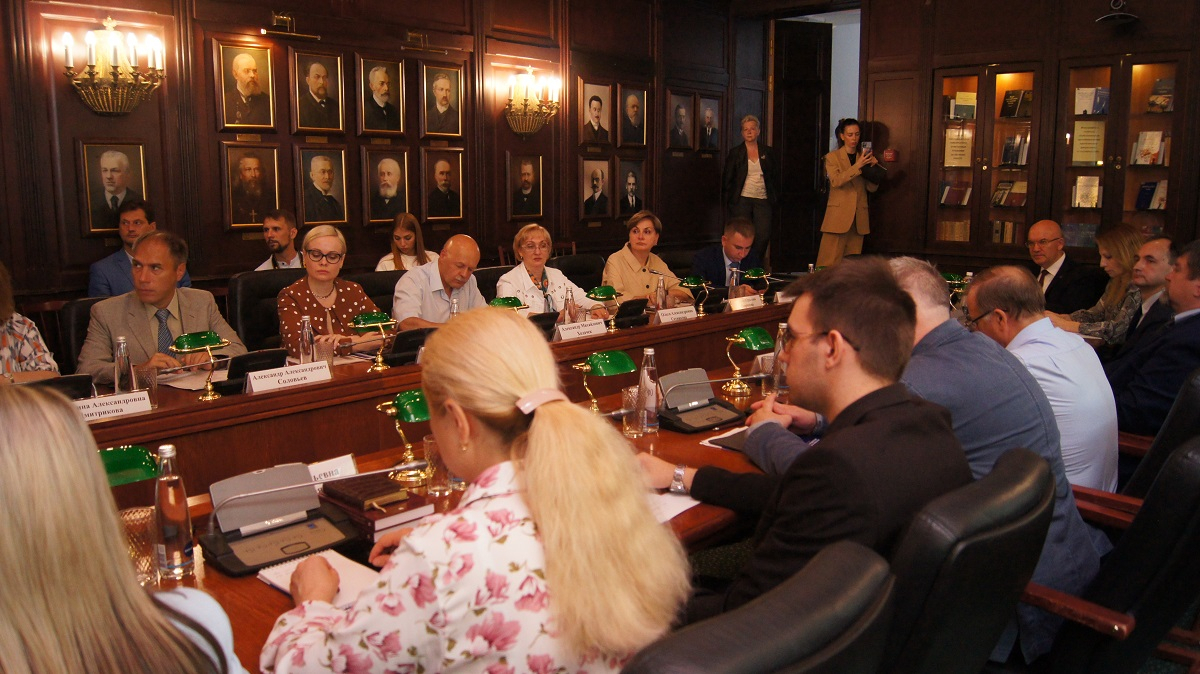Aleksandr Soloviev: ‘Less than 5% of St Petersburg University budget funds are spent on a non-competitive basis’
St Petersburg University has held a scientific and practical conference "Anti-Corruption Efforts in Educational and Research Organisations". The participants have discussed how Russian universities are fighting corruption today. Among the 700 participants were: representatives of the Ministry of Science and Higher Education and the Federal Treasury of the Russian Federation; and administrators, academics and employees of the Russian institutions of higher education and research. The event was organised by St Petersburg University in cooperation with the Association of Russia’s Leading Universities and the Ministry of Science and Higher Education of the Russian Federation.

Opening the conference, Konstantin Mogilevsky, Deputy Minister of Science and Higher Education of the Russian Federation, noted that detecting and preventing corruption in education is part of the state anti-corruption policy. It is important that law enforcement agencies, the Ministry, and universities should join forces in the fight against corruption offences.
The work of law enforcement agencies in solving crimes is very important; yet, it is limited due to its retrospective nature. In most cases, law enforcement agencies get involved when the offence has already been committed. Prevention is no less important in this area. An anti-corruption worldview should become an integral feature for both graduates and higher education workers.
Konstantin Mogilevsky, Deputy Minister of Science and Higher Education of the Russian Federation
Potentially corruption-prone areas of university activities were announced at the conference. These include: student admissions; academic activities and issuance of degree certificates; awarding of academic degrees and academic titles; staff appointments; and procurement.
Marina Lavrikova, Senior Vice-Rector for Academic Activities at St Petersburg University noted: ‘Today, St Petersburg University implements the policy of openness in all areas of its operations and activities. Various forms of feedback are extensively used. For example, the St Petersburg University Virtual Reception enables anyone to receive answers to their enquiries directly from the University administration.’
All information regarding: competitions; grants; decisions made at the Rector’s meetings; entrance exams; and the educational process is published on the St Petersburg University website, and any interested person can read it. Academic positions of "Professors", "Associate Professors", "Assistant Professor", and "Assistant Lecturers" are taken via open competition and selection. Efficient human resources management and maximum transparency of the administrative process at St Petersburg University are ensured by the Electronic Document Management System, with new digital resources being actively developed.

Aleksandr Soloviev, First Deputy for Legal Issues of the Vice-Rector, Head of the Rector’s Office at St Petersburg University, said that sometimes the decision to purchase some equipment worth millions of roubles is made by a Professor or Head of a research laboratory. Hence, such a management scheme required a significant expansion of the list of positions of St Petersburg University employees, to whom special restrictions and prohibitions apply and anti-corruption policies are implemented. If, pursuant the Decree of the Government of the Russian Federation regarding subordinate universities, these requirements only apply to the Rector of the university, his or her deputies and the chief accountant, at St Petersburg University, this list was expanded tenfold by the Rector’s decision of 2015. Since then, this list has been constantly updated. At present, all the legal requirements for anti-corruption compliance at St Petersburg University apply to almost 250 people (over 100 positions). This includes all employees involved in the organisation of procurement procedures, and other persons empowered to carry out financial and economic activities; for example, those authorised to: sign work orders; purchase equipment; and accept goods and services. According to Aleksandr Soloviev, this is not the case in any other educational organisation in the country.
The conference was attended by: Konstantin Mogilevsky, Deputy Minister of Science and Higher Education of the Russian Federation; Aleksandr Mikhailik, Deputy Head of the Federal Treasury; Vladimir Novikov, Deputy Director of the Department of Information Policy and Integrated Security of the Ministry of Science and Higher Education of the Russian Federation; Lyudmila Muromtseva, Head of the Department for Supervision of Audit Activities of the Federal Treasury; Sergei Razzhivaikin, Deputy Director at the Expert Analytical Centre; Olga Sotnikova, Rector of Pitirim Sorokin Syktyvkar State University; Irina Damm, Head of the Department for the Prevention of Corruption and Other Offences at Siberian Federal University; and other experts.
Additionally, a number of anti-corruption compliance requirements have been established by the Rector’s decision as mandatory for each employee of St Petersburg University. For example, the employment contracts of all University staff, without exception, contain a clause stating that an employee must report any cases of inducing them to commit corruption offences, and a possible conflict of personal and official interests.
Aleksandr Soloviev said that over the last four years, St Petersburg University has reduced its budget expenditures on a non-competitive basis from 35% to 5% of the total amount of budget purchases. This became possible thanks to the adopted anti-corruption measures. For instance, purchases from a single supplier used to be commonplace, whereas today the University has introduced a regulation requiring a full written justification for the need to conclude a procurement contract without competitive procedures for selecting suppliers, and all references to the emergency or urgent procurement are thoroughly checked.

‘Obviously, the need for snow removal can be predicted in advance and competitive procurement should be carried out in summer, rather than making a last-minute bid and purchasing from a single supplier,’ Aleksandr Soloviev explained. Such a measure prevents University employees from proposing, without a specific reason, a contract for services with a particular contractor in whom the employee may have a vested interest. Currently, only in case of real emergency, urgent services or goods are purchased on a non-competitive basis.
Indeed, these mechanisms made the procurement process somewhat complicated, especially at the first stage, when the system was just implemented. However, the result was a real improvement in cost efficiency due to cost savings. Usually a price drop in a competitive procurement is at least 10 per cent.
Aleksandr Soloviev, First Deputy for Legal Issues of the Vice-Rector, Head of the Rector’s Office at St Petersburg University
Another important measure is public control at the time of acceptance of the work. For example, at St Petersburg University, students are necessarily involved in assessing the quality of renovations at the halls of residence. Aleksandr Soloviev stressed that information about the effectiveness and relevance of this mechanism was repeatedly reported to the state authorities. Recently, the anti-corruption practices of St Petersburg University have been utilised by the Ministry of Education of the Russian Federation as part of the system of control over the implementation of the programme "Modernisation of School Education Systems". The relevant guidelines, approved in 2022, stipulate that major school renovation works should be carried out with the involvement of representatives of parents and students, as well as teachers at all stages — from the development and approval of renovation projects to the final acceptance of the works.
At St Petersburg University, many areas of the University life come under public scrutiny. Thus, representatives of student councils and trade union organisations serve on the student admissions committee, scholarship committees, student transfers and reinstatements panels, and commissions for the acceptance of goods, works and services under agreements (contracts). Representatives of employers oversee final state examinations and participate in the assessment of students’ graduation projects as members of state assessment committees.
Since 1 September 2016, St Petersburg University has had the right to form its own dissertation councils for defences of candidate’s and doctoral dissertations and to independently award academic degrees of St Petersburg University. Together with the new rules, St Petersburg University introduced an expanded list of anti-corruption measures as part of the procedure for awarding academic degrees. Today, all defence materials — the text of the thesis; reviews; and conclusions — are published in the public domain on the St Petersburg University website. Candidates for members of dissertation councils are selected through an open procedure. The dissertation defence is broadcast online, and the meetings of the dissertation council are video recorded.
Today, the work of universities and the formation of a responsible and patriotic university graduate committed to integrity and good conduct, should be based on the postulates of the Presidential Executive Order "On Approving the Fundamentals of State Policy for the Preservation and Strengthening of Traditional Russian Spiritual and Moral Values", published in November 2022.
Marina Lavrikova, Senior Vice-Rector for Academic Activities at St Petersburg University
Anti-corruption policies adopted at St Petersburg University regarding academic activities include: the written form of tests and exams for the continuous assessment of students’ performance; interim and final assessment of learning outcomes; encryption of exam papers with numerical codes and barcodes instead of students’ names and surnames; and appointment of independent representatives of employers in state assessment committees.

Ekaterina Dmitrikova, Associate Professor in the Department of Administrative and Financial Law, Head of the Interdisciplinary Centre for Research on Supervision Activities at St Petersburg University, drew attention to existing judicial practice that shows the risks of bringing educational organisations to administrative liability for violations of anti-corruption legislation, committed by employees, and in some cases, by former employees (the limitation period for prosecution is six years). In particular, she underlined the liability for failure to comply with anti-corruption legislation associated with the involvement of a state or municipal employee or former employee in the implementation of academic programmes, participation in a council of academic programmes, or as a member of state assessment committees. Ekaterina Dmitrikova suggested that in order to create a unified approach to the development and adoption of anti-corruption programmes by educational organisations, there is a need to draft appropriate methodological guidelines applicable not only to universities subordinate to the Ministry of Science and Higher Education of the Russian Federation. When formulating the guidelines, the results of law enforcement monitoring could be taken into account — analysis of the practice of holding both employees and educational organisations liable for violations of anti-corruption legislation.
Deputy Minister of Science and Higher Education of the Russian Federation Konstantin Mogilevsky called on the conference participants to take a closer look at the anti-corruption efforts of St Petersburg University: ‘The work on the prevention of corruption here is well-coordinated, consistent and systematic.’ He also noted that adequate anti-corruption measures do not interfere with the daily activities of the University. On the contrary, they contribute to the achievement of research and educational goals.
St Petersburg University annually holds events dedicated to combating corruption in higher education. These events are attended by experts from: the Investigative Committee of the Russian Federation; the St Petersburg Department of the Federal Antimonopoly Service; the Legal Committee of St Petersburg; the Office of the Commissioner for Entrepreneurs’ Rights Protection in St Petersburg; and practicing lawyers from overseas.

